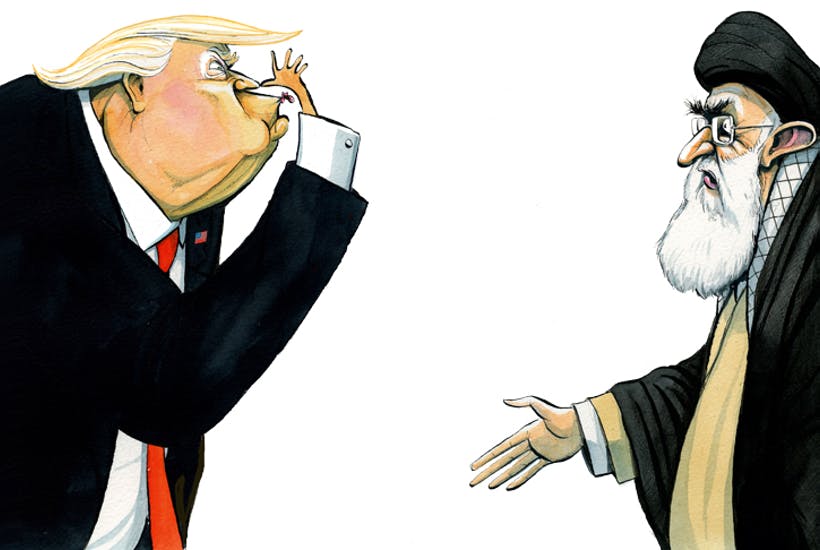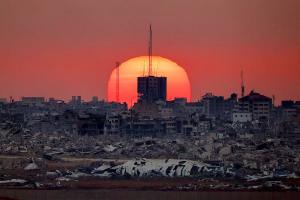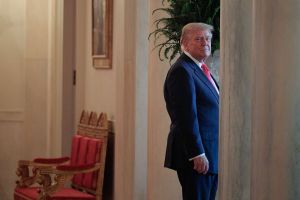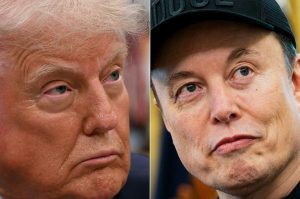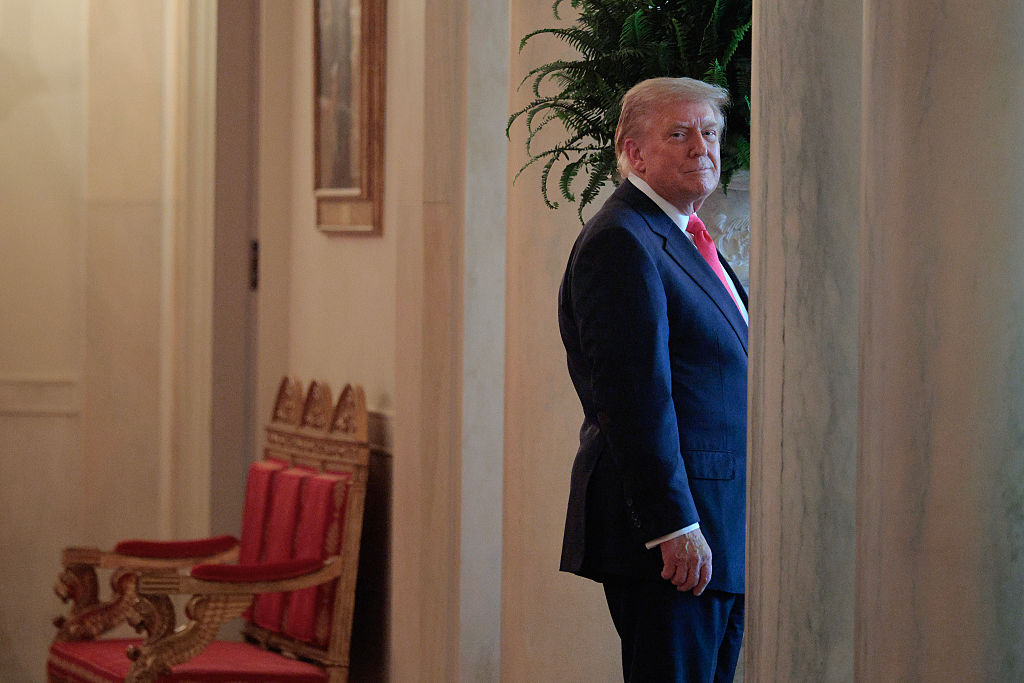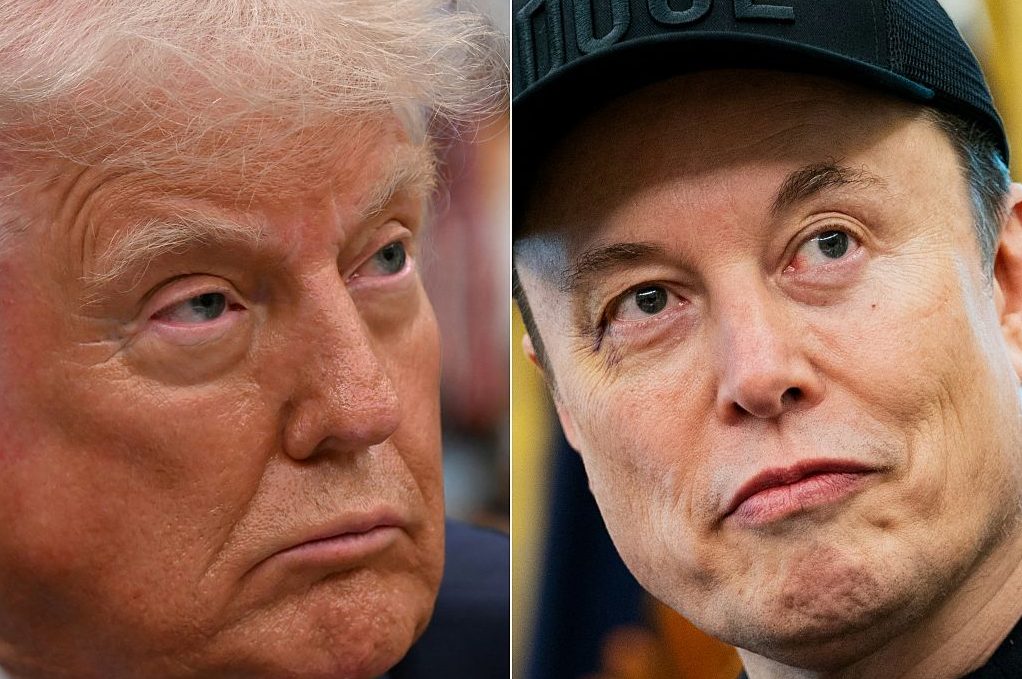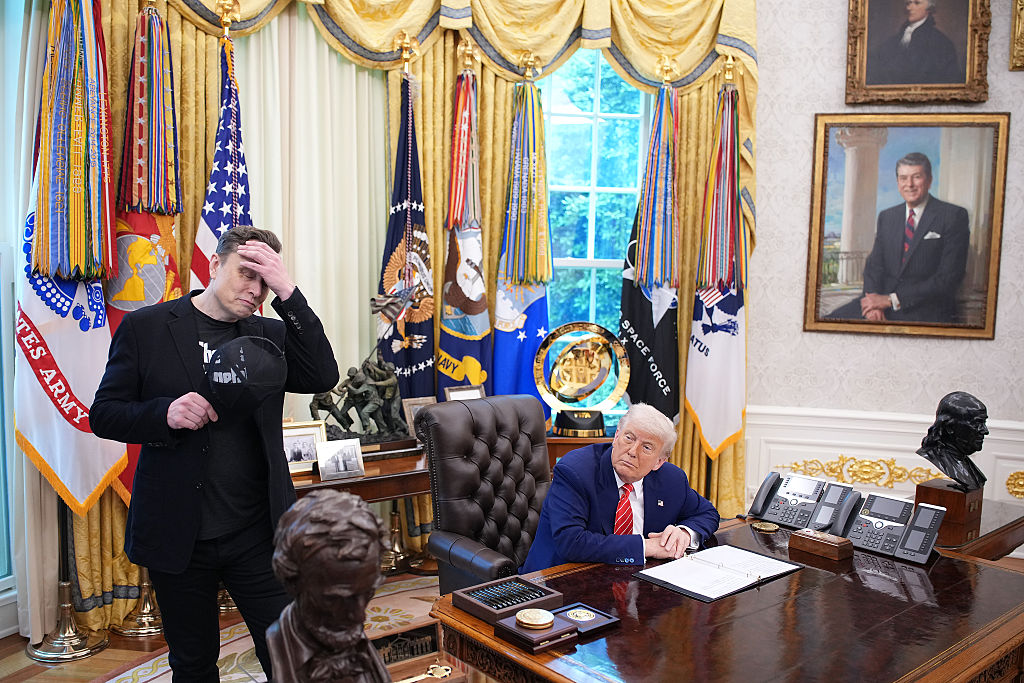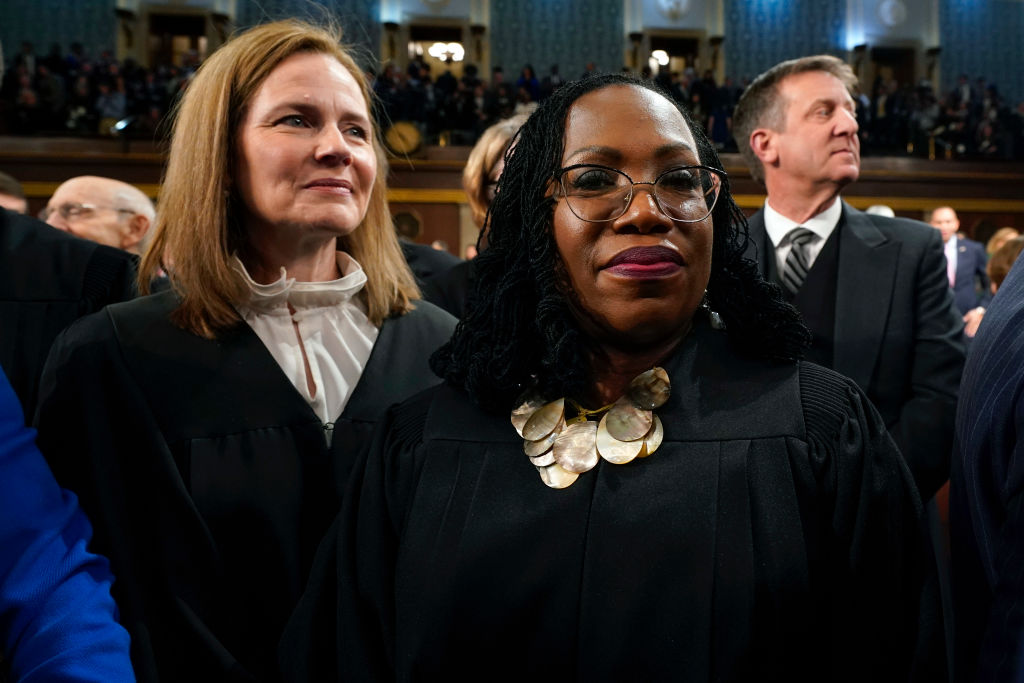Don’t believe the hawks who tell you they don’t want a war with Iran. Instead, ask them if they’d go to war to stop Iran from getting nuclear weapons, or if they’d prefer war to peace if peace meant the mullahs’ regime could cling to power. War is a means to an end, and the hawks believe the ends of regime change and nuclear nonproliferation justify war, if it comes to that. Peace too is only a means to an end, and war is what happens when the means of peace are deemed insufficient.
President Trump has a cooler head than most of his critics when it comes to nuclear weapons, as he’s proved so far with his North Korea policy. And North Korea actually has the bomb, which Iran is some distance from possessing. But certain members of Trump’s own administration are itching for regime change, as are the usual extra-governmental enthusiasts. At best, they imagine a Middle East without a hardline Shi’ite regime will be placid and pro-American; at worst, they’re not thinking at all beyond the simplest part of any war, killing the enemy. Much could be said about the unintended consequences of toppling the nasty regime in Tehran — about the trajectory of Saudi ambitions and the forces that even the most successful war would unleash — but before looking ahead, it’s worth looking back. Which, if any, of our many military interventions in the region have been a satisfying success?
The truth is that America has a perverse record when it comes to wars and other conflicts in the Islamic world. Our use of military force promotes Islamist radicalism. In the late 1980s, when the US backed the mujahideen against the Soviet-supported regime in Afghanistan, there was at least an overarching Cold War logic to what we were doing. But 12 years after the Soviets’ defeat, the US itself had to go to war against Islamists in Afghanistan in 2001. Islamists based there orchestrated the murder of 2,977 people in the United States by means of the 9/11 attacks. An armed response was necessary, but nearly 18 years later the US has been no more successful than the USSR in establishing a self-sustainable non-Islamist government in Kabul. The US has deeper pockets and is suffering casualties more slowly than the Soviets were, so our forces can stay longer. No American president wants to be our Gorbachev where Afghanistan is concerned, so they are all Gorbachevs in denial.
The Persian Gulf War of 1991 and the Iraq War of 2003 both succeeded against Saddam Hussein only at the cost of inflaming Islamism — Osama bin Laden used the 1991 Gulf War, which saw US troops in Saudi Arabia, as a propaganda tool for whipping up a terror war against ‘Crusaders.’ The 2003 Iraq War plunged that land into sectarian civil war, which served to excite Islamists throughout the region, left Iran unchecked by its old rival, and generated refugee flows that further destabilized existing regimes and created opportunities for Islamist revolution. The Islamic State was one result.
Toppling Muammar Gaddafi in Libya left a void Islamists have been eager to fill, and the bloody civil war in Syria is one that Islamists will win if Bashar al-Assad loses. We’re supposed to believe, however, that the good, America-loving Islamists will win, not the bad, American-killing Islamists. The record of the last 30 years puts the lie to that hope. The mujaheddin really were pro-American in many cases, yet they lost to the anti-American Islamists. What do we think will make the outcome any different in the long run in any of these other violent, generally poor, ideologically radicalized countries?
America’s military brass and political princelings understand this well enough on one level, but not the level that matters most — the level of professional self-interest. Just as even a wise investor who recognizes a financial bubble is growing may be logically trapped into investing in it — because if he doesn’t, he pays an opportunity cost and risks being outperformed by more reckless investors — so even those Americans in positions of power who know exactly how counterproductive our wars are think first about how their own position is affected by that knowledge. Want to be the president or general who loses a war? Want to be the media target who says that exporting liberal democracy is a waste of blood? What do you gain from doing that?
You become a professional pariah, unwelcome among think tanks and lobbyist conclaves. A few dead soldiers a year is a price our politicians and generals are willing to pay. They’ve reversed Stalin’s logic — one dead boy or girl here or there from some flyover state is a statistic; as long as there aren’t bodybags in the thousands, who is going to notice in a nation of 350,000,000 people?
A full-scale war with Iran might be a dicier proposition. The professional logic of the ruling class dictates their strategic logic, whether consciously or not: some war is good, but only if it’s not too big. The best wars are wars against pipsqueaks. The Iran hawks, like the Iraq hawks of yesteryear — they’re mostly the same birds — have to hype the future menace of their targets while also reassuring decision-makers and the public alike that a war will be quick and clean. The big bad enemy is weak. But again the record of three decades tells a different tale: wars easily won have a way of turning into bitter victories.
President Trump is in a position to break the pathological cycle of failed wars. He’s made his money, and he’s made an art of turning the media’s attacks upon him into a source of strength: he commands the news (and entertainment), and he’s not psychologically controlled by the shaming attempts of elite opinion-makers. He’s a free man — which may be why he’s constantly being portrayed as a slave to Putin.
Trump made history by saying what politicians weren’t meant to say about trade, immigration, and war. And his record so far suggests some real conviction: he’s taken risks on trade policy, risks that have paid off in the growth of good jobs and higher wages, in the face of nothing but elite scorn and assertions of apocalyptic consumer suffering. He’s pursued diplomacy with North Korea and has stopped short of bombing Iran, even while escalating pressure on the Islamic Republic. He also finished the war on ISIS by pursuing a single, attainable, anti-Islamist objective, rather than trying to replace the bloody dictator Assad with pro-American Islamists or other friendly unicorns.
Trump understands the national interest, the incompetence of other American leaders, and the difference between violence and power better than anyone who has held his office since the end of the Cold War.
But one man is not a system, and the gears that pulled America into war in the Islamic world again and again over the last three decades are still spinning. The Godfather’s precept was to keep your friends close, but your enemies closer — which may or may not be the president’s idea with John Bolton. It would be a beautiful irony, however, if Trump turns out to have placed Bolton, Pompeo, and Gina Haspel in high office only to humiliate them and defy their warmongering.
Trump is a start, but Trump alone is not enough. To stop wars like the ones we have been fighting in the Islamic world for so long — to stop them not just this time but for good — will take a change in professional as well as strategic priorities. Fire and shame the people start wars but never win them.



